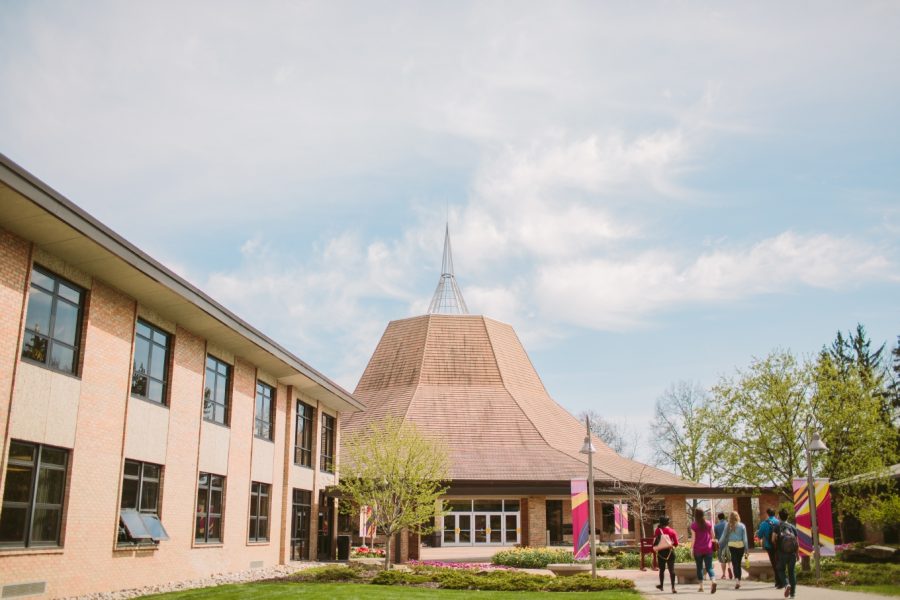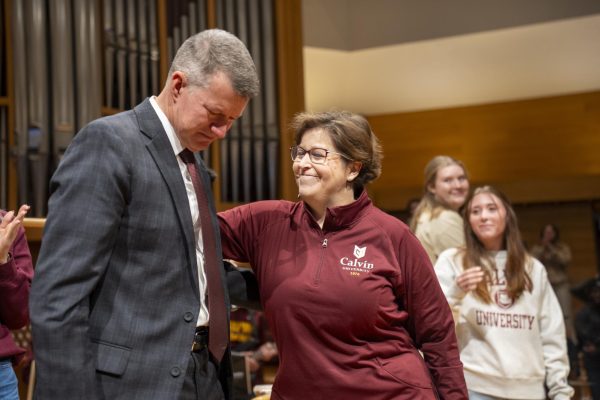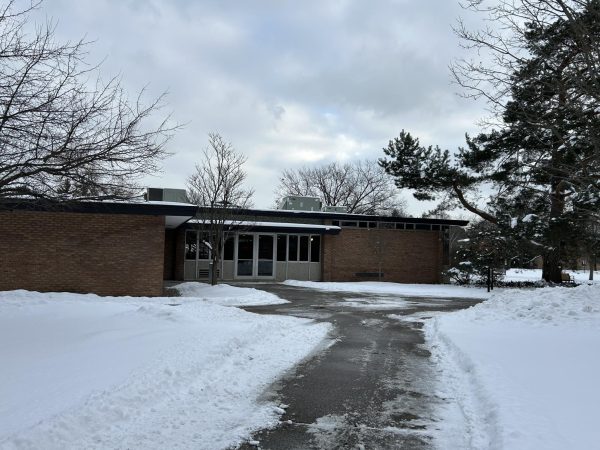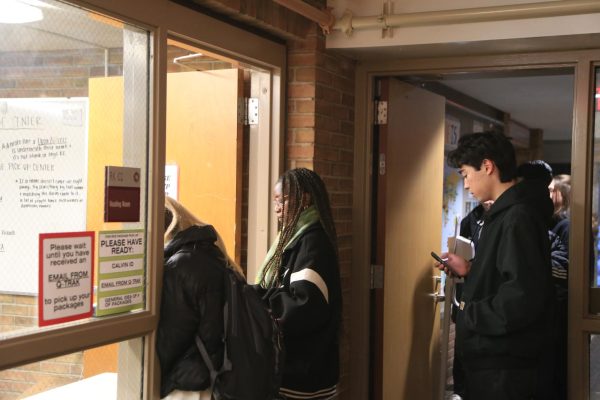Calvin aims to break the trend of decreasing enrollment numbers
Calvin has embraced the diverse denominational and religious backgrounds of students.
Despite a downward trend in enrollment, the Calvin admissions team is working on solutions to bring those numbers back up.
Some factors contributing to the decrease in enrollment are “the continuing demographic and competitive pressures facing private higher education in the Midwest and Northeast and the deliberate efforts to reduce our discount rate in order to achieve sustainable Net Tuition Revenue growth,” which were included in the statement released with the Day 10 Report.
According to surveys analyzed by Calvin’s admissions team, the population of high school graduates in Michigan is decreasing due to lower birth rates and people migrating out of Michigan, which has been ongoing since the recession in 2008. This decrease in high school graduates means colleges and universities will have increased competition for incoming freshmen to keep their class sizes the same.
Recently, the Net Tuition Revenue has remained stable. Tuition and the amount of financial aid have both increased, which leads to no changes in Net Tuition Revenue. The actual cost to attend Calvin is not changing, according to data analysis done by Calvin’s enrollment research team.
Throughout this trend in decreasing enrollment, the enrollment research team has noted several aspects of the demographics for the incoming classes that indicate negative trends. Enrollment of international students, students of color and students outside of the Great Lakes region has declined.
These changing class demographics along with the decrease in enrollment has alerted the Calvin admissions team to look for ways to reverse this trend.
They first looked to see if Calvin is changing with the market of college students. The market is decreasing, and data analyzed by enrollment has shown that Calvin has remained stagnant but matching the overall downward trend.
“One of the big drops in 2014-2018 was in the number from other states or territories [outside of the Great Lakes region]. We are in the process of evaluating how we interact with this population,” said Russell Bloem, vice president for enrollment management.
Admissions is looking to build up their presence in areas where they notice a drop in student numbers to work toward reversing the current trend in enrollment.
Another plan to remedy this negative trend is to model schools who are doing well. Some good aspects of these schools are that they have innovative academic programs, expanded athletic programs, more conservative values and strong theological emphasis to cater to families wanting a safer college environment and an aggressive increase in tuition discounts.
The looming question is, when will things get better? Different measures of success such as new and returning student numbers, a diverse academic and demographic student body profile and moderate tuition discount rates will be used by the admissions team to determine if the situation is improving.
The proposed next steps to reverse the trend are to first adjust the expectations for enrollment, to stabilize and grow from the declining market.
“Program differentiation and development are essential as students increasingly compare colleges based on academic programs rather than the overall school,” said Bloem.
Enrollment services would also like to focus on maintaining discipline in financial aid awarding by keeping the amount of financial aid awarded stable as well as making various tactical changes. These tactical changes include sharpening the admissions team, refining campus tours and messages and making smoother transitions for transfer students.
As the admissions team works to increase enrollment numbers, they would like to build on Vision 2030 — becoming a university and a trusted partner all in light of the Christian faith — over the next year in more detail. For the future, Calvin would like to reach the campus’s capacity of 4,000 students.
“There isn’t a quick fix in this environment. We need campus wide participation in all areas of Calvin — academic, alumni, parents, everyone,” said Bloem.








Lord Cavendish • Aug 4, 2021 at 4:26 pm
“Some good aspects of these schools are that they have innovative academic programs, expanded athletic programs, more conservative values”
So the writer thinks moving further toward the political right is a good thing?